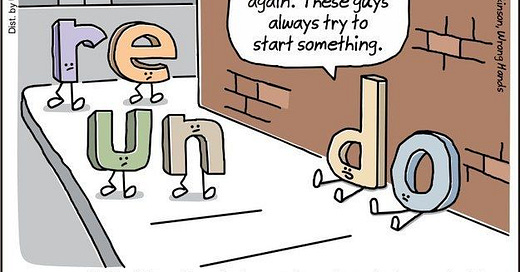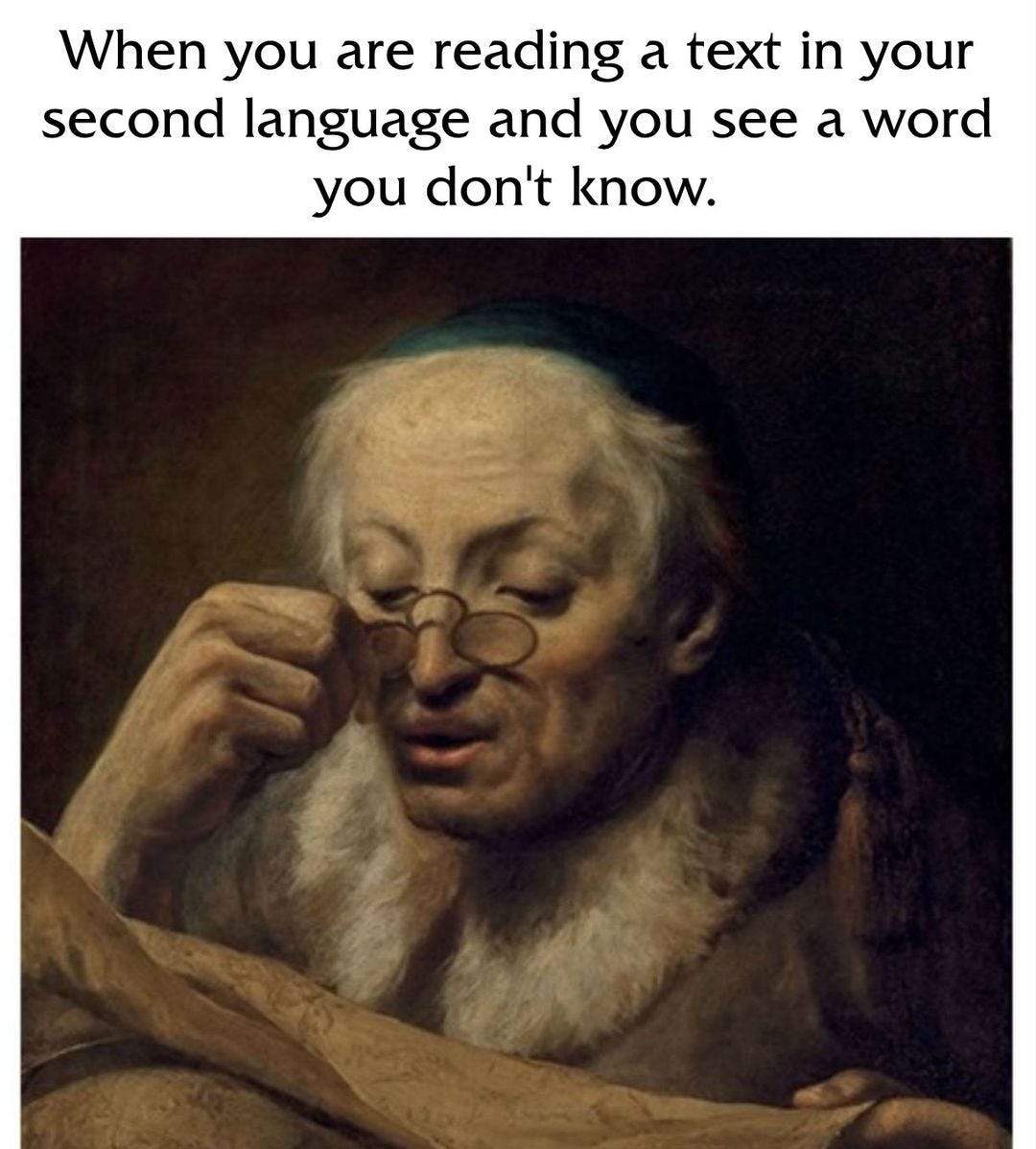Welcome, aspiring polyglot! A long time subscriber recently asked me if I had anything on getting from B2 to C2 during language acquisition. The truth is, I haven’t really written about it much because most of my focus is on getting people to B2 level. As far as I am concerned, once you have a B2 level you have everything you need to get yourself to C2. However, there are some Second Language Strategies you can use to enhance and accelerate this portion of your language acquisition.
1000 hours
Let’s set our language level to a numeric level and say 100 is perfection and no one is perfect, so the highest attainable level is 99. For all intents and purposes level 92 (B2) is half way to 99. Generally speaking, it will take you as much time to get to C2 as it took you to get to B2 and that is why I say 1000 hours. Most people hit a solid and comfortable B2 within about 500 hours. This can be accelerated, of course, but at the end of the day there simply is no replacement for exposure over time.
With that, one of the things that will accelerate the process is taking it seriously. People often fail to master things because they reach a point where what they know is enough to get by and the effort requisite to advance outweighs the perceived return on investment. For ideas on what you can do to take your language learning seriously, be sure to check out this article if you missed it:
Take it seriously
Welcome, aspiring polyglot! Having fun while learning a language is great and it should be a goal for the majority of your days. However, some people take this to mean that it should never be anything but fun, and that is simply not true. Learning anything is going to be challenging, but when it comes to solo education you
\In conjunction with the things laid out in that article, one thing you should focus on whenever the opportunity presents itself is learning more than one word at a time. That is to say, learning the words that share common roots so that you can use them irrespective of the situation or the structure of your sentence. Take the word “possible” for example. You have “possible” which is an adjective and you have “possibly” which is an adverb. On the other hand you have “impossible” and “impossibly” but don’t forget “possibility” and “impossibility”!
This is just one example of all the ways you can use this tool to enhance your language acquisition and make it beyond the B2 level. Word association is important because it will save you time in the long run. When you are able to recognize linguistic patterns like common prefixes and suffixes, you will be able to use that to understand words you don’t know simply through the parts that make up the whole.
It is not a fool proof strategy, there will always be exceptions. Focus on the times it does work and try to maintain an open mind, even when it fails a few times in a row. If you really want to test the various options that may be available to you, try doing the exercise in your native language like we just did here with the word “possible”. Practicing in any language will help you build the requisite skills to do it in another language.
Step by step
Using the above technique, dive into new literature and things that challenge you. By the time you have a B2 level, you should be able to replace all of the things you do in your day to day life with things in your target language. If you watch TV, it should be in your target language. The majority of your music should be in your target language. Anytime you are learning anything new, you should be using your target language to learn it.
Reading is one of the ways you have the most control because it is possible to find just about any book you want in your target language. Better yet, you can research, in your target language, famous and impactful authors who speak your target language natively. If there are any classics that were originally written in your target language, then get them and read them. It doesn’t matter how good a translator is, there are certain things that cannot be translated and you may be missing out on important insights by reading the translation of a classic.
In conjunction with taking your language acquisition seriously is learning to use it in a masterful way. For that to happen you have to ask yourself what it means to speak a language masterfully. I would suggest that one indication of linguistic mastery is the ability to analyze and synthesize information. This is reading comprehension at a high level and involves more than simply understanding what is written in a given text.
When you are analyzing something, focus on the key information and the consequences of that information. Think about how it will affect you, the people around you, and the greater world. Ask yourself if it is going to affect anything at all or if it is inconsequential. Defend your analysis. Demonstrate why what you are saying is true and explain what you did and how you thought to come to that conclusion. It is not enough to simply understand anymore.
For your synthesis, take two or more pieces of content and explain how they relate. Look for patterns and explain them. Add your own information on top of it and weave it in seamlessly. The challenge here is coherence on your part and the ability to make the complex simple. If you are able to understand what you are reading, but you can’t explain it in terms that are more simple, you likely need to reread the material.
The final piece to this particular puzzle is having one of two things. Either have someone who can listen to you and read what you put together to give you constructive criticism or have the ability to critique yourself and the willingness to revisit the things you have done to measure your progress. In theory you are capable of expressing just about any sentiment and addressing almost any idea, your focus now is almost entirely aimed at increasing the complexity of your grammar and the precision of your diction.
A thesaurus is going to be your best friend during this final period of language acquisition and you may find that your native language is reaping the benefits of such efforts as well. Learning to say things in new ways is crucial. Variety is a form of precision and being able to express yourself adequately is not enough anymore.
This is true for most people in their native language as well, but the goal is not to be the average. The primary reason we read classic literature in my classes is because those authors are renowned for a reason. Yes, some of the speech is “aged” and much it is overly formal, but sometimes not speaking like a zoomer is a good thing. I see maintaining the sanctity and beauty of old language to be a worthwhile endeavor; and in my experience it has never failed to impress.
Conclusion
Some people have recently been asking me what they can do to reach C2 level from B2 and I wanted to lay it out in ways that I hope make sense. At the end of the day, these things go hand in hand with simply taking your language acquisition seriously. The way most people reach C2 is through live and consequential translation and interpretation. If you can simulate this type of environment in your own studies you will see the same results.
Having a coach, educator, tutor, teacher, or whatever you want to call it can make all the difference at this point. After a certain level it is difficult to self direct and learning new things can be challenging when you don’t have someone to ask for clarification. If you feel like you are getting to that point, fill out the form linked below and I will help you figure out a path forward.
The thing most people don’t want to hear about reaching the C2 level of language acquisition is that it simply takes time. There are certain things you can do to speed up the process, but at the end of the day it takes time to master anything. At least 1000 hours. It is going to be difficult, but you can do difficult things and be great. So go out and do some difficult things and become great. I’ll be here, devising more Second Language Strategies for you.
Requests
If you have anything you would like covered you can reach out to me on X, Instagram, or at odin@secondlanguagestrategies.com.
Additional Resources
Don't want to spend time playing catch up? Pick up the 3 Months to Conversational book now available on Amazon! 3 Months to Conversational
For more long form content be sure to check out the website!
Subscribe for new content on YouTube and TikTok!
Learning Spanish? We have begun aggregating resources in you Spanish Resource Newsletter!
Don't forget to pick up your very own French Language Logbook or Spanish Language Logbook!









